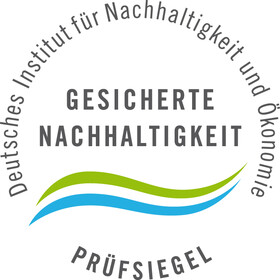Atlantic Hotel Sail City Bremerhaven
press release
Social competence is the right recipe!
So, does the highly motivated executive chef even exist? The chef who succeeds at managing his team with a healthy portion of social competence, bringing out the best in employees and ensuring a good working atmosphere throughout? When taking a closer look at current media reports and when listening to pessimistic branch experts, the answer would have to be no. A high level of employee fluctuation? - “Most of the new ones are no good.” A coarse, disrespectful tone? - “One must be able to handle this strain, because we are made of sterner stuff.” Dominik Flettner, executive chef in ATLANTIC Hotel Sail City in Bremerhaven, knows exactly how important his employees’ social competences are and also makes no exception when it comes to himself. His goal: developing a set of values for the kitchen that determines the standards for dealings with one another and interaction with other departments. Not only acting as a team, but at the same time feeling like a team. However, all of this is to be attained without the “we are better than the rest” attitude that chefs are so often accused of.
Flettner raises the bar to the same height for all involved persons: apprentices, employees, temporary workers and also himself. He has recognised that it’s sometimes the small nuances in tone and the choice of words that make all the difference. There’s a world of difference between “Finish the dessert immediately,” and “what do you need to be done with dessert by eleven thirty?” Developing a communication culture and implementing rules for respectful dealings with one another cannot be achieved from one day to the next and possibly also not with outside help. But it is possible.
The question is often asked as to which social core competences are the most important within the context of leadership qualities. If the executive chef of Sail City were only allowed to select one, it would most likely be self-criticism. Admitting to mistakes is a sign of greatness and leads to more and, especially, sustainable respect, sympathy and trust than would be the case when attacking someone with strong words. Sometimes all that is missing for a healthy degree of self-criticism is the proverbial little prod, which can, for instance, be provided during team coaching, and can help one overcome one’s own blocking barriers. On the foundation of this fundamental ability, all others can also grow, be it acquiring the ability to manage conflicts, motivate in the right areas, criticise constructively or demonstrate acknowledgement of accomplishments.
Summarised, what remains, however: it is not necessarily decisive what one brings along, how old the person is and how much professional and personal experience the individual has. What counts is to which extent someone is willing to work on him- or herself.









